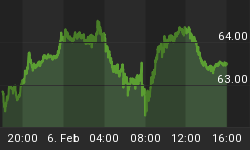A trend following strategy for the SP500 that utilizes the 40 week moving average and a filter constructed from the trends in gold, CRB Index, and yields on the 10 year Treasury has given a buy signal.
This is a strategy that I have chronicled in great detail here, here, and here. Currently, inflation expectations, as measured by our filter, remain low so that this is a positive for equities, and with prices closing above the 40 week moving average this strategy has given a buy signal.
As a quick refresher, since 1973 this strategy has yielded 1400 SP500 points; buy and hold netted about 1050 SP500 points. There have been 73 trades and only 2 trades had losses greater than 5%. Your market exposure was approximately 60%. In essence, with this strategy, you would have achieved a return 30% greater than buy and hold with 40% less market exposure and with significantly less risk. The strategy equity curve is shown in the next graph.
Figure 1. Equity Curve
The next graph shows the Maximum Adverse Excursion (MAE) graph for this strategy. See figure 2. There were only two trades that had an MAE or individual trade draw down of greater 6.5%. The caret inside the orange box represents one trade, and this had an MAE of 15.5% (x-axis) and was closed out for a loss of 9.65% (y-axis). This trade was the last trade from this strategy and it happened from March 11, 2011 to August 12, 2011. The trade inside the blue box also had an excessive drawdown or MAE, and this occurred in June, 2010.
Figure 2. MAE Graph
What is the significance of these recent trades with larger than expected MAE? Hard to say. Certainly, we can attribute it to trading, the vagaries of backtesting and the times we live in. Often times, excessive extremes seen in a single trade from a strategy are followed by a trade that has extraordinary gains. Just when something looks great it stops performing and when you forget about it, it gets its mojo back. I don't have an answer, but the premise of the trade is correct -- a close over the 40 week moving average for the SP500 in a low inflation environment should be viewed positively.
Of note, the sell signal for this strategy would be two consecutive closes below the 40 week moving average or if the inflation filter hits an extreme, which would be indicative of strong trends in gold, CRB Index and Treasury yields.















